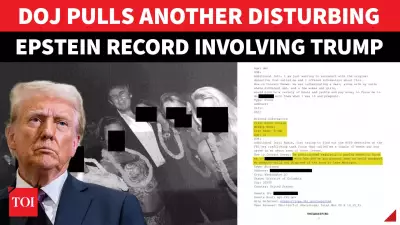
The United States House of Representatives is set to vote next week on crucial legislation that would compel the Department of Justice to release all unclassified documents related to the Jeffrey Epstein case. This development comes after mounting pressure forced Speaker Mike Johnson to schedule the vote, despite his previous opposition to the move.
The Political Push for Transparency
Speaker Mike Johnson confirmed on Wednesday, November 12, that the House will hold the vote next week, though Republican leaders have not specified the exact date. Johnson's statement revealed his personal skepticism about the process, calling it "a totally pointless exercise" and "completely moot now." However, he acknowledged the reality of the situation, stating, "They have 218 signatures, that's fine. We'll do it."
The vote was triggered by a discharge petition that gathered sufficient support to force the issue onto the House floor. With 218 signatures already secured—more than the 217 needed for passage under normal rules—the bill appears likely to clear the House hurdle.
What the Epstein Files Transparency Act Demands
The proposed legislation, officially titled The Epstein Files Transparency Act, would require Attorney General Pam Bondi to make public all unclassified Department of Justice records connected to Jeffrey Epstein and his associate Ghislaine Maxwell. The bill mandates the creation of a comprehensive, searchable, and downloadable archive containing specific categories of information.
The required disclosure includes records concerning Epstein and Maxwell, names of individuals connected to Epstein's criminal activities, details of civil settlements, immunity deals, plea agreements, and non-prosecution agreements. Additionally, the legislation calls for internal DOJ communications regarding decisions to charge or not charge Epstein or his associates, along with information about Epstein's federal incarceration and death.
Protected Information and Voting Scenarios
While the bill demands broad transparency, it does allow for necessary redactions to protect sensitive information. The Attorney General may withhold or redact documents containing personally identifiable information of victims, victims' medical or personal files, child sexual abuse material, and information that could jeopardize an active federal investigation. However, any such redactions must be temporary and narrowly tailored.
The House vote could proceed through two possible pathways. If Republican leadership brings the bill under a rule, it would need a simple majority of 217 votes out of 433 members. The earliest this could happen is Tuesday. Alternatively, if Speaker Johnson chooses the suspension of the rules route, the bill would require a two-thirds majority—289 votes—which appears less likely given current Republican support levels.
Potential Roadblocks Ahead
Even if the bill passes the House, its journey toward becoming law faces significant obstacles. The legislation would then move to the Senate, where Majority Leader John Thune has expressed support for transparency but has not committed to scheduling a vote. Furthermore, even if Congress approves the bill, President Donald Trump is expected to veto it.
Overriding a presidential veto would require a two-thirds majority in both chambers—a high political threshold that makes ultimate passage uncertain. Nevertheless, the upcoming House vote represents a significant step in the ongoing effort to achieve full transparency in the Epstein case that has captured international attention.





